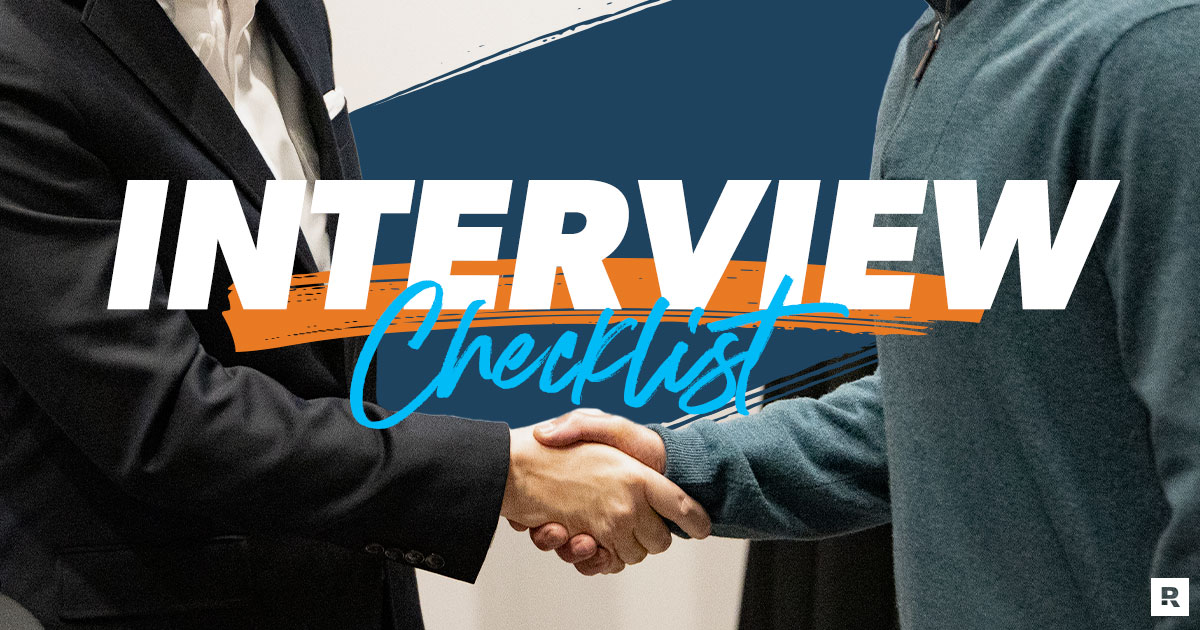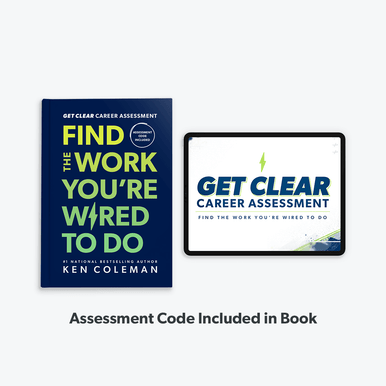
Key Takeaways
- During an interview, you want your skills to stand out most. Keep your overall clothing and accessories professional rather than attention-grabbing.
- Think of the items in this list as either practical, personal or professional. They all serve different functions and can help you feel more prepared for your interview.
- Make a checklist of these items a few days before your interview to help you remember what to bring on the big day.
You might think that acing a job interview only has to do with the work experience on your resumé or describing your strengths and weaknesses with charisma. But there’s more that affects a hiring manager’s impression of you, especially when it comes to how prepared you are and what you bring to your interview.
Get expert money advice to reach your money goals faster!
A job interview is an important situation where first impressions really count. We’re going to look at a few essentials that’ll help get your interview off to a good start, plus a few things that would be better left at home.
If you’re wondering what to bring to an interview so you can walk in feeling confident and prepared, keep reading.
Important Items to Bring to an Interview
As you’re getting ready for your interview, don’t forget to bring along these 12 must-have items. From professional documents to personal accessories, having these things on hand will help you feel polished, appear prepared, and make the interview process run smoother for you and the hiring managers:
- Multiple copies of your resumé
- Your interview schedule and a map of your route
- A printout of the job description
- A list of professional references
- A pen and notebook
- A list of questions about the job and company
- Personal hygiene items
- A jacket or scarf
- Your enthusiasm and a positive attitude
- A small snack
- A brief pitch about why you’re interested in the job
- Gratitude
1. Multiple Copies of Your Resumé
Your hiring manager should already have a copy of your resumé, but even so, it’s a good idea to bring an extra (or three). You might want to share your resumé with an additional hiring manager that you meet or keep one as a reference for yourself.
Having an extra copy also helps you review your experience before your interview so you can highlight your most relevant skills and passions during the conversation without drawing a blank (hey, it happens to the best of us!).
2. Your Interview Schedule and a Map of Your Route
Hopefully, the HR team will provide you with an interview schedule and directions to the office or meeting area. If not, go ahead and bookmark the office address on your phone’s navigation app. Take your interview start time and work backward from that so you can leave home with enough buffer to allow for traffic or unexpected delays. I recommend arriving 15 minutes early.
3. A Printout of the Job Description
Before your interview, print out and spend time reviewing the job description. Jot down any questions or notes you have about the company and the requirements of the position. Bring a physical copy of the job listing with you to write on during the interview. That way, you can keep track of all the new information you learn and make notes about elements of the role that may or may not be a great fit for your goals.
4. A List of Professional References
In case they ask, bring a list of three to five professional contacts your hiring manager can call for a reference check. Your interviewer will typically take the lead here and let you know when they need this information. But being prepared, even with something as simple as a list of phone numbers and email addresses, can leave a positive impression.
5. A Pen and Notebook
I can’t stress this enough: Bringing a pen and paper with you is a simple and effective way to demonstrate “I’m paying attention.” Nothing communicates that you’re taking an interview seriously and are engaged in the conversation like being prepared to take notes.
6. A List of Questions About the Job and Company
Not only is an interview an opportunity for a company to learn more about you, but it’s also a chance for you to learn about the company. Before your interview, browse the company’s website and social media accounts. Come up with a list of thoughtful questions to ask your hiring manager. Write down what you’d like to learn about the culture, team and responsibilities of the job and bring these questions to your interview. Here are some examples of questions to ask in an interview:
- Why are you hiring for this position?
- How are performance and success measured in this role?
- What are some common challenges for someone in this position?
- How would you describe the office and team environment?
7. Personal Hygiene Items
Keep a few small items like a pack of breath mints, Chap Stick, a comb and any makeup touch-up tools in your purse or satchel. These toiletries can come in handy if you need to freshen up during a quick bathroom break, which can make all the difference if it’s a windy day or if you’ve just eaten a meal. Besides, when you look good, you feel good.
8. A Jacket or Scarf
Office temperatures can be unpredictable. And depending on the season, the weather can change quickly. Bring a light layer like a jacket or scarf so you can stay comfortable if the office is unusually chilly or you find yourself shivering from the wind while walking across the office campus. Just remember to keep your clothing professional.
9. Your Enthusiasm and a Positive Attitude
It doesn’t matter if you have the shiniest portfolio or the fanciest resumé in the world if your attitude stinks. Hiring managers can smell negativity from a mile away, so be sure to bring a friendly attitude and cheerful personality. There’s no need to be obnoxious about it, but your positivity will speak for itself. Here are some other tips to demonstrate confidence and enthusiasm through your body language:
- Make eye contact.
- Sit up straight.
- Smile!
- Give a firm handshake when meeting someone new.
10. A Small Snack
If your interview is scheduled to last a few hours or more, it’s a good idea to bring a light snack with you. Things like granola bars, jerky and fruit travel well and don’t make a mess. If you have a break to rest and reset between meetings, this is a perfect time to satisfy any hunger pangs. Just don’t pop open a bag of Doritos mid-interview!
11. A Brief Pitch About Why You’re Interested in the Job
Okay, I don’t mean you need to share your entire life story. But you should have a few sentences prepared to explain who you are, why you’re interested in this job opportunity, and what you’re generally all about. You don’t want to ramble—or the opposite, scratch your head—when it comes to introducing yourself and talking about your work goals in your interview.
12. Gratitude
A simple “thank you” goes a long way when you want to make a good impression. Be sure to tell your interviewer how excited you are for the opportunity to join their company, and thank them for taking time to meet with you. You can tell them directly during your interview or send a thank-you note as a follow-up.
Here's A Tip
Make a checklist of these items the week (or a few days) before your interview in your phone’s notes app or on a sticky note you can post somewhere convenient. That way, you’ll know exactly what to pack with you on the day of your interview.
What Not to Bring to an Interview
Just like you want to bring those important things with you to an interview, it’s equally important to leave some things at home. We’re going to look at the behaviors and items you’d be better off not bringing to your interview—so you have the best chance at wowing your hiring managers and presenting your best self.
1. Your Phone (or Other Gadgets) With the Ringer On
Folks, this is Job Interview 101. Turn off your phone (or at least switch it to silent or “Do Not Disturb”) so you don’t risk interrupting your interview. You want to be totally present for this important conversation. Not only would a surprise phone call be disruptive, but a cheesy ringtone wouldn’t be the best look for your personal brand. Same goes for your smartwatch: Turn off any alarms or notification sounds until after your interview.
2. Chewing Gum or Takeaway Meals
I wish I didn’t have to say this, but smacking gum during an interview is likely to leave a bad impression on your hiring manager. Even if you’re interviewing at a more casual company, chewing gum is never a good look when your goal is to communicate clearly and professionally. And definitely don’t bring your leftover lunch into the office. You don’t want to carry around a plastic bag of chicken tikka masala that will sound and smell disruptive to the office.
3. Valuables That Need Storage or Safekeeping
If you’re traveling for your interview and need to carry your luggage with you before a flight, figuring out what to do with your bags can be tricky. If you’re unable to leave your valuables locked safely in your car, ask if they can be held at your hotel or in the greeting area of the office where you’re interviewing. It would be too much of a hassle (not to mention awkward) to drag your suitcase around a maze of cubicles and conference rooms. Failing to plan here is planning to fail.
4. Inappropriate Clothing or Heavy Fragrances
I want your skills and qualifications to stand out—not your frayed hems or heavy cologne. Here’s a rule of thumb: Keep your outfits appropriate to the work setting and avoid strong smells as much as possible. It’s common courtesy to keep your fragrances on the lighter side. During an interview, you want to be remembered for you, not your brand of cologne or a standout outfit.
5. A Bad or Stressed-Out Attitude
Please, whatever you do, leave your bad attitude outside the building. Even if you get stuck in traffic or spill coffee on your shirt, these little annoyances are opportunities to share how you handle disappointment and surprises. Instead of getting flustered or mad, take ownership and move on. You’ve got a team to impress!
Even More Tips to Ace Your Next Interview
Now that you know what to bring to an interview (and what to leave at home), it's time to shine during the conversation with hiring managers. I guarantee if you follow these suggestions, you’ll be more prepared than most of your competition.
For even more guidance on preparing for your interview, download my free Interview Guide. I share more techniques for answering the most common interview questions and creating a strong first impression so you can step into your interview with confidence.
And just one more thing: If you’re not sure what work you’d like to do, but you know it’s time to move on to a new opportunity, check out my Get Clear Career Assessment and Find the Work You’re Wired to Do. Together, these tools will help you get clarity on the type of work you do best.



